Episode 83: Can the WTO Retool for an Age of Geoeconomic Competition?
The open and rules-based trading system is at an inflection point. Countries are reexamining their trade policies in the wake of the COVID-19 pandemic, China’s rise, and Russia’s invasion of …
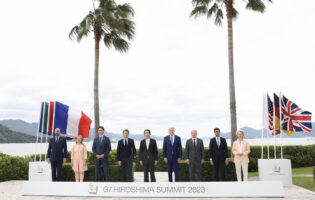
With a Push by the EU, the G7 Adapts to a Disorderly Global Economy
When European Commission President Ursula von der Leyen came into office in the fall of 2019, she proclaimed the advent of a new “geopolitical Commission” where internal and external actions …
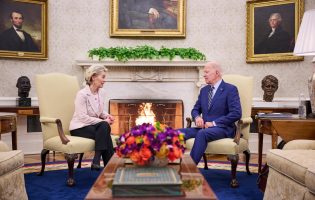
A Transatlantic Display of Trade Policy’s Future
Since U.S. Treasury Secretary Janet Yellen’s speech last spring calling for the United States to achieve “free and secure trade…with the countries we know we can count on” the notion …
Episode 78: Transatlantic Trade Cooperation for the Future—A Conversation with Dan Mullaney
Dan Mullaney, Former Assistant U.S. Trade Representative for Europe and the Middle East, is our guest for this episode of The Zeitgeist. Together with AGI President Jeff Rathke and Peter …

The IRA and the Meaning of “Free Trade”
The Inflation Reduction Act (IRA) approved by the U.S. Congress last August continues to provoke transatlantic frictions. The European Union has welcomed the climate investments in the IRA that will …
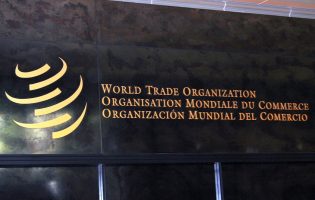
The WTO and National Security
Destress and Reform The Biden administration has reacted strongly to the ruling by the World Trade Organization (WTO) last week against the Trump-era national security tariffs on steel and aluminum. …
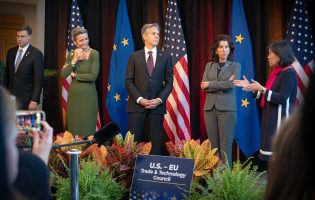
Compartmentalizing the Transatlantic Economic Relationship
What is the best way to judge the success of the third meeting of the U.S.-EU Trade and Technology Council (TTC) held on December 5th at the University of Maryland …
Episode 68: U.S.-German Economic Relations and a Changing Global Landscape
On this episode of The Zeitgeist, AGI President Jeff Rathke and Peter Rashish, Director of the AGI Geoeconomics Program, discuss the state of German-American economic relations and the countries’ shared …
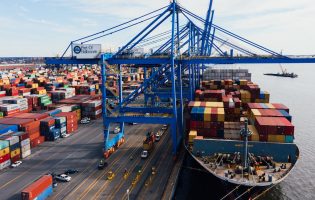
Trade Liberalization: De Jure and De Facto
More than a year and a half into his administration, President Biden has so far followed through on a key campaign pledge: to forego new trade deals that open U.S. …
Episode 66: Are the International Trading System and Globalization in Crisis?
On this episode of the podcast, AGI President Jeff Rathke and Peter Rashish, Director of the AGI Geoeconomics Program, discuss the ongoing challenges facing international trade, potential reforms to the …
Episode 65: The Future of Trade and Globalization—A Conversation with Former WTO Director-General Pascal Lamy
On this episode of the podcast, AGI President Jeff Rathke and Peter Rashish, Director of the AGI Geoeconomics Program, discuss the challenges facing globalization and the evolving international trading system …
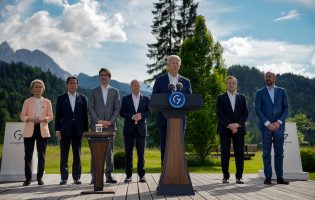
Friendshoring: Democracy or Diversity?
In an April 2, 1917 speech before Congress arguing for U.S. entry into World War I, President Woodrow Wilson famously declared that “the world must be made safe for democracy.” …




